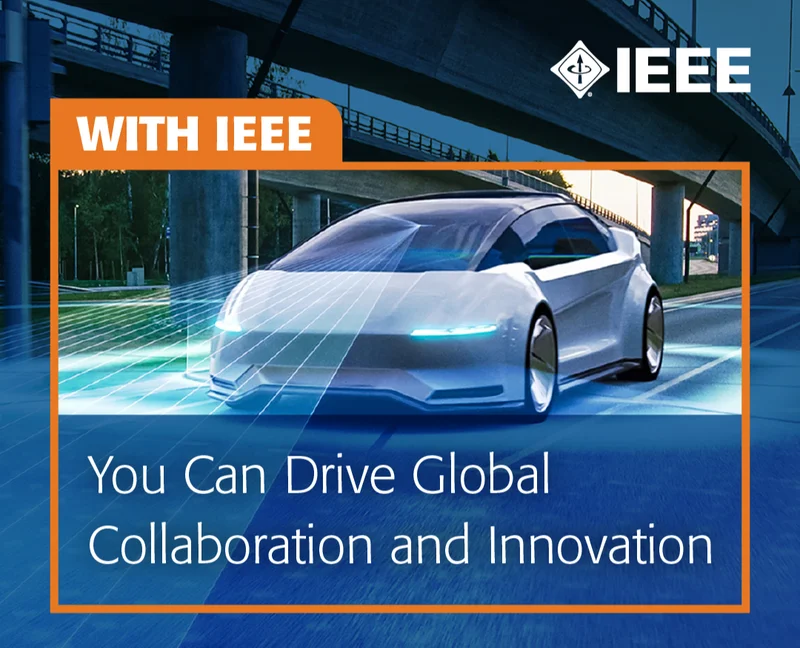The Institute of Electrical and Electronics Engineers (IEEE) presents itself as a leading force in technological advancement. A quick scan of IEEE news reveals conferences, publications, and standards-setting activities across diverse fields. But a closer look raises a critical question: is the IEEE truly driving innovation, or is it primarily amplifying existing trends within a self-referential ecosystem?
One IEEE Spectrum article highlights the importance of prioritization for engineers. The story of a Meta engineer who rapidly climbed the ranks by focusing on key projects resonates. The author, Rahul, notes that "the biggest productivity 'hack' is to simply work on the right things." This sounds sensible, but it also begs the question: how are "the right things" determined? Are these priorities genuinely novel, or are they simply the projects that best fit existing corporate agendas?
The IEEE itself is a massive organization. IEEE membership is a gateway to a vast network, but that network can also become an echo chamber. The pressure to publish in IEEE transactions and present at IEEE conferences can incentivize researchers to pursue incremental advancements on established ideas rather than risk exploring truly disruptive concepts. It's a classic case of optimizing for career progression within the system, rather than optimizing for groundbreaking progress for the broader world.
Consider the case of Webert Montlouis, PhD, Fellow IEEE. His accomplishments, as highlighted in a recent press release, are impressive. He revitalized dormant projects, developed novel radar architectures, and mentored numerous students. But even his achievements seem to be geared toward improving existing systems (radar, missile defense) rather than inventing entirely new paradigms. This isn't a criticism of Dr. Montlouis, but rather an observation about the broader culture that IEEE fosters. (The press release, typical of these announcements, offers no hard data on the "tenfold improvement" mentioned.)
The IEEE Underwater Acoustic Signal Processing Workshop, held biannually at the University of Rhode Island, provides a more specific example. The workshop, a collaboration with the Naval Undersea Warfare Center, focuses on improving signal processing techniques for underwater applications. While the research is undoubtedly valuable—sound travels four times faster in water than air—it's largely focused on refining existing technologies for defense and environmental monitoring. Professor Richard Vaccaro's comments about the workshop's evolution are telling. He notes the increasing participation of industry partners, as well as academic partners and independent non-profit ocean conservation organizations. This collaboration is positive, but it also raises the possibility of groupthink. Are researchers truly challenging the fundamental assumptions of underwater acoustics, or are they primarily focused on solving the problems that are most relevant to their funders and collaborators? Kaushallya Adhikari's experience is illustrative. She presented at the workshop as a Ph.D. student and later returned as a faculty member and workshop chair. This highlights the tight-knit community within the field, which can be both a strength and a weakness. While it fosters collaboration and mentorship, it also risks reinforcing existing biases and limiting exposure to outside perspectives.

The upcoming BioRob 2026 conference offers another lens through which to examine IEEE's impact. The conference focuses on biomedical robotics, biomechatronics, and human-robot interaction. The event promises to showcase "breakthrough research and prototypes that later become commercial technologies," including robotic prosthetics, exoskeletons, and surgical robots. The promotional material for BioRob 2026 emphasizes the integration of AI into these technologies. AI is positioned as a key driver of innovation, enabling robots to learn human movements, predict patient needs, and improve accuracy. This is where I start to become deeply skeptical. (I've looked at hundreds of these conference announcements, and the uncritical embrace of "AI" is a recurring theme.) The conference website prominently features exoskeletons, exosuits, and wearable assistive devices. While these technologies have the potential to improve the lives of people with disabilities, they also raise questions about accessibility and affordability. Will these devices be available to everyone who needs them, or will they primarily benefit those who can afford to pay a premium? The marketing copy mentions investors and stock market performance multiple times, which is a red flag for me.
The IEEE, like many professional organizations, operates as a closed-loop system. Researchers publish in IEEE papers, present at IEEE conferences, and serve on IEEE committees. This creates a self-reinforcing cycle of recognition and reward. While this system can be effective at promoting incremental advancements, it may also stifle truly radical innovation. The focus on IEEE citation counts and IEEE format requirements can discourage researchers from pursuing unconventional ideas that may not fit neatly into existing frameworks.
Is the IEEE a valuable platform for sharing knowledge and fostering collaboration? Absolutely. But is it a guaranteed engine of disruptive innovation? The data suggests a more nuanced picture. The IEEE appears to be more effective at amplifying existing trends than at creating entirely new ones.
The IEEE provides a crucial service: it organizes and disseminates a vast amount of technical information. But we shouldn't confuse activity with progress. The sheer volume of IEEE xplore articles and IEEE transactions doesn't necessarily translate into meaningful advancements in the real world. The organization's focus on established technologies and incremental improvements may be hindering its ability to drive truly disruptive innovation. It's a high volume of output, but is it signal, or just noise?
The IEEE isn't inherently good or bad. It's a complex organization with a mixed track record. But the data suggests that its impact on technological innovation is more nuanced than its promotional materials would have us believe. The organization's focus on established technologies, incremental improvements, and self-referential validation may be hindering its ability to drive truly disruptive innovation. The IEEE is a powerful force, but its influence should be examined with a healthy dose of data-driven skepticism.